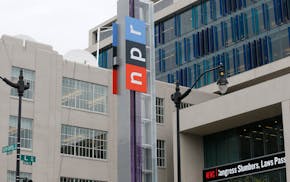ATLANTA - Just a few years ago, Delta Air Lines languished near the bottom of on-time performance rankings.
But after undertaking a far-reaching effort to reduce delays, cancellations and lost bags, Delta has improved its operations, boosting its performance while rivals such as American and United have been preoccupied by bankruptcy or mergers.
In 2012 through November, Delta ranked fourth among 15 U.S. airlines for on-time performance, behind Hawaiian, Alaska and AirTran. That means it was first among big network carriers. It also has reduced mishandled baggage, consumer complaints and cancellation rates. End-of-year statistics are due in coming weeks.
With more to brag about, Delta CEO Richard Anderson has been touting the importance of on-time performance and service in attracting customers and holding down costs.
How much such yardsticks matter to fliers depends on the customer, industry experts say. Many simply search for the best fares and schedules and assume service is about the same at all carriers.
An airline's most valuable customers -- business travelers who fly often and usually pay higher fares for shorter-notice, more-flexible itineraries -- are more particular about service.
"If you've got bad operational performance, your top-dollar customers are going to steer away from you," said Brad Beakley, head of consulting for Sabre Airline Solutions, which sells technology to help airlines manage operations. "It only takes one or two misconnected flights, one or two lost bags, or one or two dissatisfied customer situations, that customer is going to look for an alternative."
In 2010, Delta ranked 15th of 18 U.S. carriers ranked by on-time performance -- worst among big network airlines. Back then, Delta downplayed consequences, instead boasting of its international route network, amenities for first class travelers and competitive fares.
But while travelers in Delta's hubs, such as Atlanta and the Twin Cities, have limited options to Delta, low rankings hurt in competition for fliers elsewhere. Delta management decided to make cutting costly delays and other glitches part of the financial strategy.
In the past couple of years, Delta has added maintenance stations to reduce flight cancellations, added computers in jetways to gate-check bags and fine-tuned the dozens of steps in the countdown before departure of a flight by flight attendants, pilots, ground workers and gate agents. It set a target of closing cargo doors three minutes before departure time.
The overall goal: Get the plane away from the gate on time, boosting chances of an on-time arrival.
No airline can avoid delays entirely. Delta, for example, has improved its overall on-time performance, but was hit by storms and bad weather that led to delays in December. The broader picture for the year may be lost on travelers whose flights were delayed or canceled over the holidays.
Behind the scenes, poor on-time performance costs money.
"Running a bad operation is very, very expensive," Beakley said.
Abu Ghraib military contractor warned bosses of abuses 2 weeks after arriving, testimony reveals
Biden vows to shield US steel industry by blocking Japanese merger and seeking new Chinese tariffs
Georgia's parliament votes to approve so-called 'Russian law' targeting media in first reading
Jill Biden says an agreement to let federal employee military spouses work from overseas is overdue
